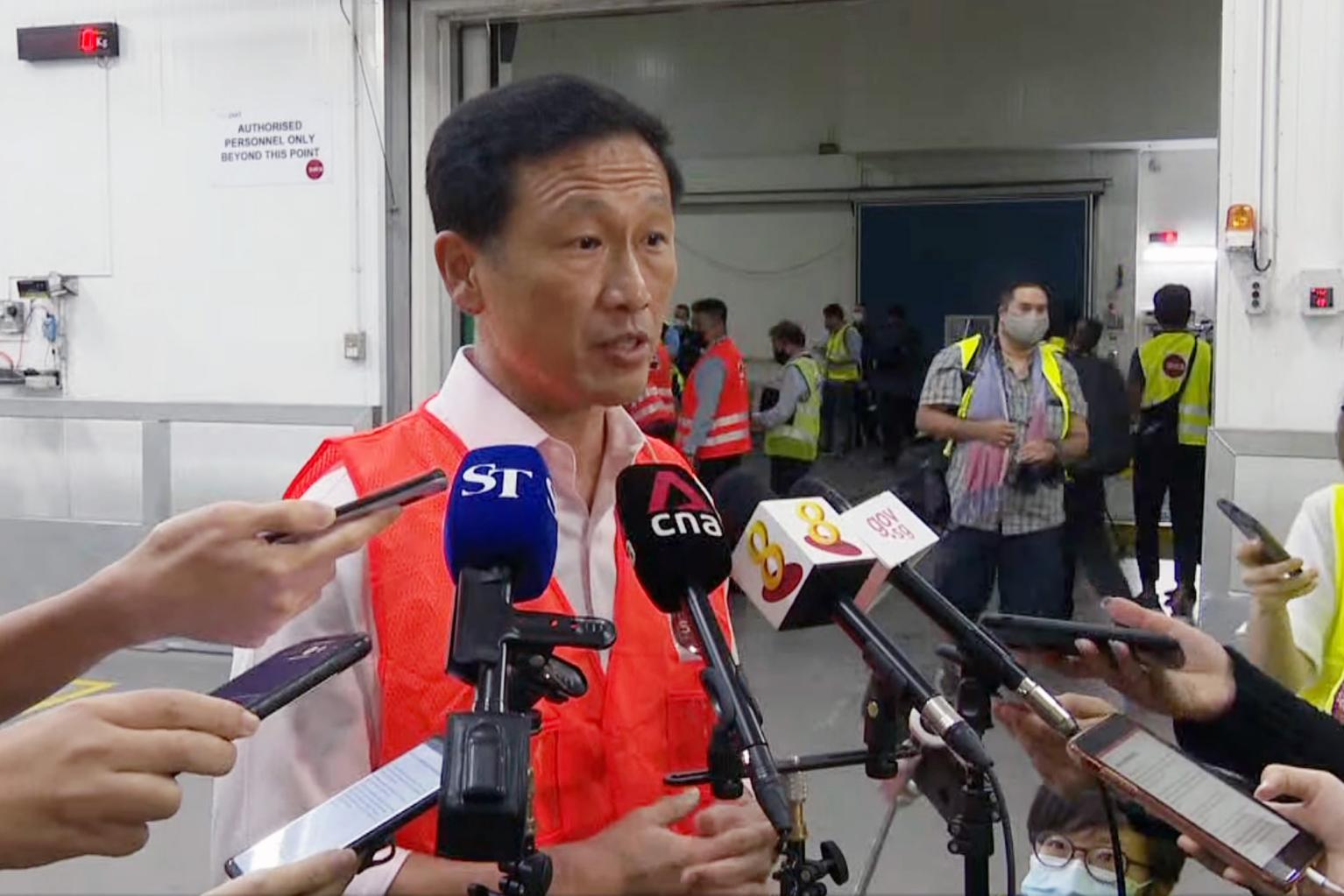Singapore wants to be hub for Covid-19 vaccine transport, says Ong Ye Kung
Sign up now: Get ST's newsletters delivered to your inbox

Transport Minister Ong Ye Kung said the Republic has the capabilities to make sure the process is secure and that there is adequate capacity.
PHOTO: ST VIDEO
Toh Ting Wei, Yuen Sin
Follow topic:
SINGAPORE - Singapore wants to become a Covid-19 vaccine distribution hub for the region, Transport Minister Ong Ye Kung said on Monday evening (Dec 12).
He said the Republic has the capabilities to make sure the process is secure and that there is adequate capacity.
"Some countries, of course, would prefer direct delivery because they will think that it's faster, so point-to-point delivery. But I think there's also a case to say that a place like Singapore. With our Changi family, we can also play a role as a hub for distribution and transportation to the region," he said.
"I don't think they are mutually exclusive."
Mr Ong was speaking to the media at a cold chain management facility run by cargo handler Sats after welcoming the arrival of the first batch of Covid-19 vaccine in Singapore.
"Our staff, our logistics companies, they all have been trained up to the World Health Organisation standards to be able to handle all this cargo safely," said Mr Ong.
"In terms of capacity, we have quite a huge capacity... more than adequate to handle temperature controlled cargo."
Mr Ong said the estimated cargo movement for vaccines is about 65,000 tonnes worldwide but local handler Sats dealt with more than 300,000 tonnes of temperature-controlled shipment in the last year alone.
The Republic also has the support of firms including logistics giants DHL, UPS and FedEx, as well as pharmaceutical companies.
"Everything must come together," said Mr Ong. "We have worked on it for several months and we'll continue to work on it."
There has been hope that positioning Singapore as a hub for vaccine transportation could give the battered aviation sector another boost as it seeks to continue its gradual recovery.
In the last few months, the air cargo industry in Singapore has been intensifying preparations to safely transport Covid-19 vaccines in a constant temperature-controlled environment.
In October, the Civil Aviation Authority of Singapore and Changi Airport Group (CAG) set up a task force comprising 18 members to look into improving the process.
Mr Ong said they had been identifying possible challenges and seeking to address them even before a vaccine was produced.
"One example was when they got to know that the Pfizer vaccine requires minus 70 deg C of storage, they started to look at dry ice production," said Mr Ong.
"So today, Sats can produce 4 tonnes of dry ice every day in its... own facilities."
This work, which also involved trial runs, has helped to ensure the first shipment of Covid-19 vaccine arrived in Singapore safely, said Mr Ong.
He said the shipment was a joint effort involving several organisations, including the Economic Development Board and the Ministry of Health.
Singapore Airlines (SIA), which flew in the vaccine from Brussels on its cargo plane, said on Monday that it was honoured to be able to play its part in an important milestone in the fight against Covid-19.
Senior vice-president for cargo Chin Yau Seng said: "It also served to demonstrate SIA's and the Singapore air hub's readiness for the very important job of transporting and distributing Covid-19 vaccines internationally."

